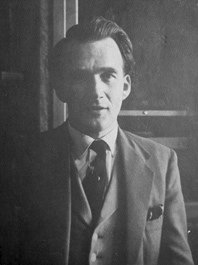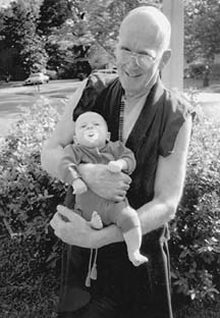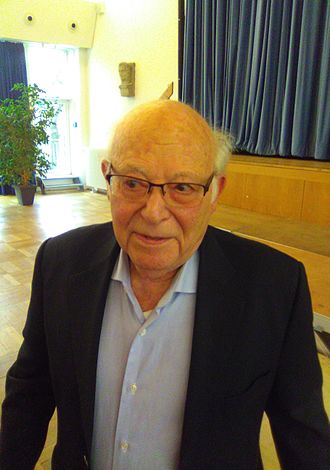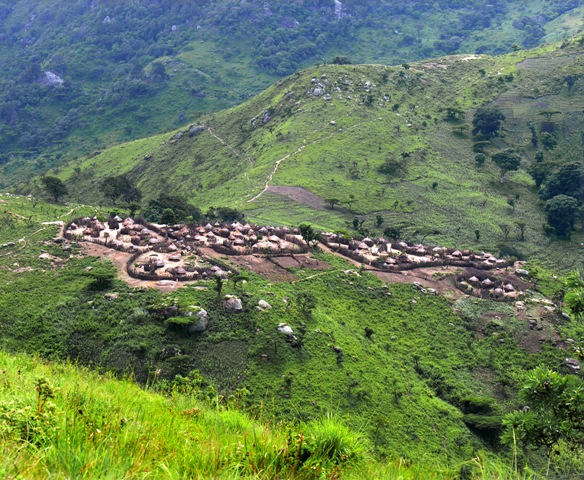Colin Turnbull, 1924-1994



Colin Turnbull, 1924-1994



イギリス・ロンドン生まれの人類学者、米 国籍(1964-1994)として亡くなった。『森の民』『山の民』『人間のサイクル』などの著作で有 名。また民族音楽学研究 のパイオニアのひとりともされる。 1972年には、イク族が経験した困難の説明と解決策を考えるよう依頼され、物議を醸した『山の民』を出版した。イク族は狩猟採集生活を営む部族で、ウガ ンダ、ケニア、スーダンの3カ国の国境に接するようになったため、四季を通じて先祖伝来の土地を移動することを止めざるを得なくなった。ウガンダに定住す ることを余儀なくされた彼らは、そのような状況下で生き延びるための知識ベースや文化を持たず、繁栄に失敗し、飢え死にさえした。985年、言語学者のベ ルント・ハイネがターンブルの主張に異議を唱えた。彼がイク族の言語と伝統的な祝日を分析したところ、農業に関する記述が数多く見 つかり、彼らは狩猟と採食を補う歴史的な農耕民であることが示唆された。このことは、遊牧生活を否定する長老たちの証言によって裏付けられた。
| Colin Macmillan
Turnbull (November 23, 1924 – July 28, 1994) was a British-American
anthropologist who came to public attention with the popular books The
Forest People (on the Mbuti Pygmies of Zaire) and The Mountain People
(on the Ik people of Uganda), and one of the first anthropologists to
work in the field of ethnomusicology. |
コリン・マクミラン・ターンブル(1924年11月23日〜1994年
7月28日)はイギリス系アメリカ人の人類学者で、『森の民』(ザイールのムブティ・ピグミー族に関する著書)や『山の民』(ウガンダのイク族に関する著
書)で一躍注目を集めた。 |
| Early life Turnbull was born in London and educated at Westminster School and Magdalen College, Oxford, where he studied politics and philosophy. During World War II he was in the Royal Naval Volunteer Reserve after which he was awarded a two-year grant in the Department of Indian Religion and Philosophy, Banaras Hindu University, India, from which he graduated with a master's degree in Indian Religion and Philosophy. |
生い立ち ターンブルはロンドンで生まれ、ウェストミンスター・スクールとオックスフォードのマグダレン・カレッジで教育を受け、政治と哲学を学んだ。第二次世界大 戦中は王立海軍志願予備軍に所属し、その後インドのバナーラス・ヒンドゥー大学のインド宗教哲学科に2年間留学、インド宗教哲学の修士号を取得した。 |
| Career In 1951, after his graduation from Banaras, Turnbull traveled to the Belgian Congo (present-day Democratic Republic of the Congo) with Newton Beal, a schoolteacher from Ohio he met in India. Turnbull and Beal first studied the Mbuti pygmies during this time, though that was not the goal of the trip. An "odd job" Turnbull picked up while in Africa at this time was working for the Hollywood producer Sam Spiegel. Spiegel hired Turnbull to assist in the construction and transportation of a boat needed for his film. This boat was the African Queen, which was used for the feature film The African Queen (starring Humphrey Bogart and Katharine Hepburn; 1951).[1] After his first trip to Africa, Turnbull traveled to Yellowknife in the Northwest Territories, where he worked as a geologist and gold miner for a year,[2] before he went back to school to obtain another degree. Upon returning to Oxford in 1954, Turnbull began specializing in the anthropology of Africa. He remained in Oxford for two years before another field trip to Africa, finally focusing on the Belgian Congo (1957–58) and Uganda. After years of fieldwork, he finally achieved his anthropology doctorate from Oxford in 1964. Turnbull became a naturalized citizen of the United States in 1965, after he moved to New York City to become curator in charge of African Ethnology at the American Museum of Natural History in 1959. He later resided in Lancaster County, and was on staff in the Department of Sociology and Anthropology, Virginia Commonwealth University, in Richmond, Virginia. Other professional associations included corresponding membership of Royal Museum for Central Africa and a fellowship in the British Royal Anthropological Institute. He first gained prominence with his book The Forest People (1961), a study of the Mbuti people. In 1972, having been commissioned to come up with an explanation and solution to the difficulties experienced by the Ik people, the controversial The Mountain People was published. The Ik were a hunter-gatherer tribe who had been forced to stop moving around ancestral lands, through the seasons, because it now involved the three national borders of Uganda, Kenya and Sudan. Forced to become stationary in Uganda, and without a knowledge base and culture for survival under such conditions, they failed to thrive, even to the point of starvation and death. The Mountain People was later adapted into a theatrical work by playwright Peter Brook.[3] |
経歴 1951年、バナーラス大学を卒業したターンブルは、インドで知り合ったオハイオ出身の教師ニュートン・ビールとともにベルギー領コンゴ(現在のコンゴ民 主共和国)を訪れた。ターンブルとビールはこの時初めてムブティ・ピグミーを研究したが、それがこの旅の目的ではなかった。 アフリカ滞在中にターンブルが得た「奇妙な仕事」は、ハリウッドのプロデューサー、サム・スピーゲルの下で働くことだった。スピーゲルはターンブルを雇 い、彼の映画に必要なボートの建造と輸送を手伝わせた。この船は、長編映画『アフリカの女王』(ハンフリー・ボガートとキャサリン・ヘプバーン主演、 1951年)で使用されたアフリカン・クイーン号であった[1]。最初のアフリカ旅行の後、ターンブルはノースウエスト準州のイエローナイフに渡り、そこ で1年間、地質学者と金鉱労働者として働いた[2]。 1954年にオックスフォードに戻ると、ターンブルはアフリカの人類学を専門とし始めた。オックスフォードに2年間滞在した後、再びアフリカを訪れ、最終 的にはベルギー領コンゴ(1957-58年)とウガンダに焦点を当てた。長年のフィールドワークを経て、1964年にオックスフォード大学で人類学の博士 号を取得した。 ターンブルは1959年にアメリカ自然史博物館のアフリカ民族学担当学芸員となるためニューヨークに移り、1965年にアメリカに帰化した。その後ランカ スター郡に居住し、バージニア州リッチモンドにあるバージニア・コモンウェルス大学社会学・人類学部の職員となった。その他、中央アフリカ王立博物館の会 員、英国王立人類学研究所のフェローシップなど、専門的な団体に所属。ムブティ族に関する研究書『The Forest People』(1961年)で脚光を浴びる。 1972年には、イク族が経験した困難の説明と解決策を考えるよう依頼され、物議を醸した『山の民』を出版した。イク族は狩猟採集生活を営む部族で、ウガ ンダ、ケニア、スーダンの3カ国の国境に接するようになったため、四季を通じて先祖伝来の土地を移動することを止めざるを得なくなった。ウガンダに定住す ることを余儀なくされた彼らは、そのような状況下で生き延びるための知識ベースや文化を持たず、繁栄に失敗し、飢え死にさえした。 『マウンテン・ピープル』は後に劇作家ピーター・ブルックによって演劇化された[3]。 |
| Contributions to music Some of Turnbull's recordings of Mbuti music were commercially released, and his works inspired other ethnomusicological studies, such as those of Simha Arom and Mauro Campagnoli. His recording of Music of the Rainforest Pygmies, recorded in 1961, was released on CD by Lyrichord Discs, Inc. His recording of a Zaire pygmy girls' initiation song was used on the Voyager Golden Record.[4] Music of the Rain Forest Pygmies (1960s Central African Traditional) FULL ALBUM Simha Arom (born 16 August 1930)[1] is a French-Israeli ethnomusicologist who is recognized as a world expert on the music of central Africa, especially that of the Central African Republic. His books include African Polyphony and Polyrhythm: Musical Structure and Methodology (1991) ISBN 0-521-24160-X. He also made some historical field recordings of the Aka Pygmy music. In the 1960s, Arom was sent by the Government of Israel to establish a brass band in the Central African Republic. He became fascinated by the traditional music of this country, especially the vocal polyphonies of the Aka Pygmies. He entered the CNRS in 1968 and in 1984 he received its Silver Medal. He did field work every year from 1971 to 1991, accompanied by ethnolinguists and students, to record this music to study it and preserve it. Arom was awarded a First Prize for French Horn at the Conservatoire National Supérieur de Musique of Paris before becoming an ethnomusicologist. Using interactive experiments, he has worked on uncovering implicit musical systems and the way in which cultures build cognitive categories as attested in their music. His work is based on the postulate that, in order for it to be valid, data collected in the field must be corroborated by cognitive data specific to the holders of the culture studied. His research topics include the temporal organization of music, musical scales, polyphonic techniques, music in the social system and the elaboration of conceptual tools for the categorization, analysis and modeling of traditional music. From a mostly descriptive discipline, he has tried to build a science in the full sense of the word, with all of its attributes: experimentation, verification, validation, modeling, conceptualization and reconstitution by means of synthesis. He has been a Visiting Professor at many universities – particularly Montreal, UCLA, Vancouver, M.I.T., Cambridge (U.K.), Tel-Aviv, Bar-Ilan, Haifa, Basel, Zurich, Siena, and Venice, and his work has inspired contemporary composers such as Luciano Berio (Coro), György Ligeti, Steve Reich, Fabien Lévy and Fabian Panisello. Arom is Research Director Emeritus at the CNRS, a founding member of the Société française d'ethnomusicologie, the Société française d'analyse musicale, the European Society for the Cognitive Sciences of Music (ESCOM) and the European Seminar in Ethnomusicology; he is also a member of the Société française de musicologie and the Board of directors of The Universe of Music project (UNESCO). His sound archives were deposited in 2011 at the sound library of the Bibliothèque nationale de France. Arom was the subject of the 2014 documentary SIMHA by Jerome Blumberg.[2] |
音楽への貢献 ターンブルが録音したムブティ音楽のいくつかは商業的に発売され、彼の作品は、シムハ・アロムやマウロ・カンパニョーリなど、他の民族音楽学研究に影響を 与えた。1961年に録音された『Music of the Rainforest Pygmies』はリリコード・ディスク社からCD化されている。ザイールのピグミー族の少女たちのイニシエーション・ソングの録音は、ボイジャー・ゴー ルデン・レコードに採用された[4]。  シムハ・アロム(Simha Arom 1930 年8月16日生まれ)[1]はフランス系イスラエル人の民族音楽学者で、中央アフリカ、特に中央アフリカ共和国の音楽の世界的専門家として知られている。 著書に『African Polyphony and Polyrhythm: 1991年)ISBN 0-521-24160-X。また、アカ・ピグミー音楽の歴史的フィールド録音も行っている。 1960年代、アロムはイスラエル政府から派遣され、中央アフリカ共和国に吹奏楽団を設立した。彼はこの国の伝統音楽、特にアカ・ピグミーの声楽ポリフォ ニーに魅了された。1968年にフランス国立科学研究センター(CNRS)に入学し、1984年には同センターの銀賞を受賞。1971年から1991年ま で毎年、民族言語学者や学生を伴って現地調査を行い、この音楽を録音して研究し、保存した。アロムは、民族音楽学者になる前に、パリ国立高等音楽院でフレ ンチホルンの一等賞を受賞している。インタラクティブな実験を用いて、暗黙的な音楽システムと、文化がその音楽に証明される認知カテゴリーを構築する方法 の解明に取り組んできた。彼の研究は、それが有効であるためには、フィールドで収集されたデータは、研究対象文化の保持者に特有の認知データによって裏付 けられなければならないという仮定に基づいている。研究テーマは、音楽の時間的構成、音階、ポリフォニックな技法、社会システムにおける音楽、伝統音楽の 分類・分析・モデリングのための概念ツールの開発など。ほとんど記述的な学問から、実験、検証、妥当性確認、モデル化、概念化、合成による再構成など、あ らゆる特性を備えた完全な意味での科学を構築しようとしてきた。特にモントリオール、UCLA、バンクーバー、M.I.T.、ケンブリッジ(英国)、テル アビブ、バルイラン、ハイファ、バーゼル、チューリッヒ、シエナ、ヴェニスなど多くの大学で客員教授を務め、ルチアーノ・ベリオ(Coro)、ギョル ジー・リゲティ、スティーブ・ライヒ、ファビアン・レヴィ、ファビアン・パニセッロなど現代の作曲家にも影響を与えた。フランス国立科学研究センター (CNRS)の名誉研究ディレクターであり、フランス民族音楽学会、フランス音楽分析学会、ヨーロッパ音楽認知学会(ESCOM)、ヨーロッパ民族音楽学 セミナーの創立メンバー。彼の音源は2011年にフランス国立図書館のサウンド・ライブラリーに寄託された。アロムは、ジェローム・ブルムバーグによる 2014年のドキュメンタリー映画『SIMHA』の題材となった[2]。 |
| Personal life Turnbull's partner, Joseph Allen Towles, was born in Senora, Virginia, on August 17, 1937. In 1957 he moved to New York City to pursue a career as an actor and writer. He met Turnbull in 1959 and they exchanged marriage vows the following year.[5] From 1965 to 1967, Turnbull and Towles conducted fieldwork among the Ik of Northern Uganda in Africa. In the Congo in 1970, they conducted fieldwork on the Nkumbi circumcision initiation ritual for boys and the Asa myth of origin among the Mbo of the Ituri forest. In 1979, they traveled studying the concept of tourism as pilgrimage. Towles criticised Turnbull's semi-autobiographical work The Human Cycle (1983), which omitted all references to their relationship.[5] Turnbull arranged for Towles' research to be published posthumously. It appeared in 1993 as Nkumbi initiation ritual and structure among the Mbo of Zaïre and as Asa: Myth of Origin of the Blood Brotherhood Among the Mbo of the Ituri Forest, both in Annales of the Royal Museum for Central Africa (Tervuren, Belgium), vol. 137.[6][7] |
私生活 ターンブルのパートナー、ジョセフ・アレン・タウルズは1937年8月17日、バージニア州セノーラ生まれ。1957年、俳優と作家としてのキャリアを追 求するためニューヨークに移住。1959年にターンブルと出会い、翌年に結婚の誓いを交わした[5]。 1965年から1967年にかけて、ターンブルとタオルズはアフリカのウガンダ北部のイク族をフィールドワークした。1970年にはコンゴで、イトゥリの 森のムボ族を対象に、少年の割礼儀式であるンクンビとアサの起源神話に関するフィールドワークを行った。 1979年、彼らは巡礼としての観光の概念を研究するために旅をした。タウルズはターンブルの半自伝的作品『人間のサイクル』(1983年)を批判した。 ターンブルはタウルズの研究が死後に出版されるよう手配した。それは1993年に『ザイールのムボ族におけるンクンビの入門儀式と構造』として、また『ア サ』として出版された: どちらもAnnales of the Royal Museum for Central Africa(ベルギー、タービュレン)137巻に収録されている[6][7]。 |
| Later years Late in life Turnbull took up the political cause of death row inmates. After his partner's death, Turnbull donated all his belongings to the United Negro College Fund. He donated all their research materials, most of which were the product of his career, to the College of Charleston, insisting that the collection be known under Towles' name alone.[8] In 1989, Turnbull moved to Bloomington, Indiana, to participate in the building of Tibetan Cultural Center with his friend Thupten Jigme Norbu, elder brother of the 14th Dalai Lama. Later Turnbull moved to Dharamsala, India where he took the monks' vow of Tibetan Buddhism, given to him by the Dalai Lama. Turnbull's partner, Joseph A Towles died of AIDS in 1988, and Turnbull had Towles book "Nkumbi Initiation and Asa: Myth of Origin of the Blood Brotherhood Among the Mbo of the Ituri Forest" published posthumously. Turnbull himself died of AIDS in 1994.[9][10][11] |
晩年 晩年、ターンブルは死刑囚の政治活動を始めた。パートナーの死後、ターンブルは全財産をUnited Negro College Fundに寄付した。彼はその研究資料のほとんどをチャールストン大学に寄贈し、そのコレクションはタウルズの名前だけで知られるように主張した[8]。 1989年、ターンブルはインディアナ州ブルーミントンに移り、ダライ・ラマ14世の兄で友人のトゥプテン・ジグメ・ノルブとともにチベット文化センター の建設に参加した。その後、ターンブルはインドのダラムサラに移り、ダライ・ラマから与えられたチベット仏教の僧侶の誓いを立てた。ターンブルのパート ナーであったジョセフ・A・タウルズは1988年にエイズで亡くなったが、ターンブルはタウルズの著書「ンクンビ・イニシエーションとアサ」を出版させ た: Myth of Origin of the Blood Brotherhood Among the Mbo of the Ituri Forest "が死後出版された。ターンブル自身は1994年にエイズで死亡した[9][10][11]。 |
| Controversy Bernd Heine exemplifies the strong reaction evoked by Turnbull's evaluation of the Ik in a 1985 article.[12] Using information gained 20 years after Turnbull's researches, he provided new information that appeared to discredit the portrayal of the Ik provided by Turnbull. Many people[who?] found Turnbull's accounts of the Ik disturbing; however, his graphic descriptions were placed into context by interviews he did with older Ik to contrast the older society that existed prior to displacement.[citation needed] BBC Radio 4 broadcast 10 March 2021 a review by Matthew Syed of the influence of Turnbull's Mountain People and its subsequent reassessment and revision by anthropologists.[13] https://en.wikipedia.org/wiki/Colin_Turnbull |
論争 ベルント・ハイネは1985年の論文で、ターンブルのイク族に対する評価が呼び起こした強い反応を例証している[12]。ターンブルの調査から20年後に 得た情報を使って、ターンブルが提供したイク族の描写を否定するかのような新しい情報を提供した。多くの人々[誰?]はターンブルのイク族に関する記述を 不穏なものと感じたが、彼の生々しい描写は、移住前に存在した古い社会と対比させるために、年配のイク族と行ったインタビューによって文脈に配置された [要出典] BBCラジオ4は2021年3月10日に、ターンブルの『山の民』の影響と人類学者によるその後の再評価と改訂についてのマシュー・サイードによるレ ビューを放送した[13]。 12: Africa, The Mountain People: Some Notes on the Ik of North-Eastern Uganda. 13:The Most Selfish People on Earth. |
| Publications 1961 The Forest People. ISBN 0586059407 1962 The Lonely African. ISBN 0671200690 1962 The Peoples of Africa. 1965 Wayward Servants: The Two Worlds of the African Pygmies. ISBN 0837179270 1966 Tradition and Change in African Tribal Life.[ISBN missing] 1968 Tibet: Its History, Religion and People. (with Thubten Jigme Norbu). ISBN 0701113545 1972 The Mountain People. ISBN 0671640984 1973 Africa and Change editor. ISBN 0394315200 1976 Man in Africa. ISBN 0140220356 1978 "Rethinking the Ik: A functional Non-Social System". In: Charles D. Laughlin, Jr.; Ivan A. Brady (ed.): Extinction and Survival in Human Populations. New York: Columbia University Press 1983 The Human Cycle. ISBN 0586084932 1983 The Mbuti Pygmies: Change and Adaptation. ISBN 0030615372 1992 Music of the Rain Forest Pygmies: The Historic Recordings Made By Colin M. Turnbull Label: Lyrichord Discs Inc. "The Mbuti Pygmies: An Ethnographic Survey" in Anthropological Papers of the American Museum of Natural History, 50: 139–282 https://en.wikipedia.org/wiki/Colin_Turnbull |
|
| Simha Arom, who
also studied pygmy culture |
|
| Joseph Towles
(August 17, 1937 – December 19, 1988) was an African American
anthropologist and author of the books Nkumbi Initiation and Asa: Myth
of Origin of the Blood Brotherhood Among the Mbo of the Ituri
Forest.[1] Towles was born in Senora, Virginia, to Arcellius Towles and
Lucy Blair and was raised in Virginia before moving to New York City to
pursue acting. He graduated with an undergraduate degree in
anthropology from Pace University, and received a Ph.D. from Makerere
University in Uganda.[2] Career Towles was a volunteer in the Anthropology department at the American Museum of Natural History, where he assisted in the creation of the "Man in Africa Hall," later called the "Hall of African Peoples" from 1965 to 1967.[2] Towles is credited with developing sections of the exhibit on African American enslavement, the African experience in the Americas, and Egyptian history.[3] According to In the Arms of Africa, Towles' work on "Man in Africa Hall" gave the exhibit greater staying power by including Egypt, which was typically included in Middle Eastern studies rather than African studies at the time. The exhibit was one of the first in the United States to situate the study of Egypt within Africa rather than the Middle East.[4] Towles also researched and constructed the "Slavery in the New World" section of the museum.[2] Turnbull and Towles spent time in Africa conducting anthropological fieldwork with the Ik, Mbuti, and Mbo peoples.[5] Personal life Towles met British anthropologist Colin Turnbull in 1959 while living in New York.[3] They were married in 1960 and lived together until Towles' death of AIDS in 1988.[2] In 1967, Turnbull and Towles built an estate in Lancaster county, Virginia, called Chestnut Point.[3] https://en.wikipedia.org/wiki/Joseph_Towles |
ジョセフ・タウルズ(1937年8月17日 -
1988年12月19日)はアフリカ系アメリカ人の人類学者であり、『Nkumbi Initiation』と『Asa:
タウルズはバージニア州セノーラでアーセリアス・タウルズとルーシー・ブレアの間に生まれ、バージニア州で育った後、俳優を目指すためにニューヨークに移
住した。ペース大学で人類学の学士号を取得し、ウガンダのマケレレ大学で博士号を取得した[2]。 経歴 タウルズはアメリカ自然史博物館の人類学部門のボランティアで、1965年から1967年まで「アフリカの男ホール」(後に「アフリカ民族のホール」と呼 ばれる)の創設を手伝った[2]。タウルズは、アフリカ系アメリカ人の奴隷化、アメリカ大陸でのアフリカ人の経験、エジプトの歴史に関する展示のセクショ ンを開発したことで知られている。 [3] In the Arms of Africaによると、「Man in Africa Hall」でのタウルズの仕事は、当時アフリカ研究よりもむしろ中東研究に含まれることが一般的であったエジプトを含めることで、展示に大きな力を与え た。この展示は、エジプト研究を中東ではなくアフリカの中に位置づけた、米国で最初の展示のひとつであった[4]。 ターンブルとタウルズはアフリカに滞在し、イク族、ムブティ族、ムボ族の人類学的フィールドワークを行った[5]。 私生活 1960年に結婚した2人は、1988年にタウルズがエイズで亡くなるまで一緒に暮らした[2]。1967年、ターンブルとタウルズはヴァージニア州ラン カスター郡にチェスナットポイントと呼ばれる邸宅を建てた[3]。 |
| Bernd Heine (born
25 May 1939) is a German linguist and specialist in African studies. From 1978 to 2004 Heine held the chair for African Studies at the University of Cologne, Germany, now being a Professor Emeritus. His main focal points in research and teaching are African linguistics, sociolinguistics, grammaticalization theory and language contact and discourse grammar. The grammaticalisation theory, which deals with the changes in grammar, and to which he contributed 7 books and numerous articles, is his main focal point. Jointly with Tania Kuteva and Gunther Kaltenböck, Heine is the founder of the framework of discourse grammar. Early years and education Heine was born in Mohrungen, East Prussia (now Morąg, Poland). During the Second World War, in 1944 his parents fled to Austria and later took up residence in Bavaria, before settling in Leverkusen in 1948. From 1949 to 1959 Heine attended the Landrat-Lucas-Gymnasium in Opladen. Afterwards, he studied at the University of Cologne and University of Hamburg. In 1967 he was awarded a PhD in Cologne. In 1972 he received his postdoctoral lecture qualification for African studies. Professional career From 1968 to 1969 he was an assistant at the Department for African Studies of the University of Cologne, from 1969 to 1972 he was a lecturer and from 1975 to 1978 visiting professor at the University of Nairobi. In 1978 he took over the chair of African Studies at the University of Cologne. He carried out 25 field research trips to Ghana, Togo, Kenya, Tanzania, Uganda and Namibia as well as lecturing trips to Australia, Austria, Brasil, England, Estonia, Ethiopia, Finland, France, Italy, Japan, Kenya, Mexico, Namibia, The Netherlands, Poland, Spain, South Africa, South Korea, Sweden, Tanzania and United States of America. Guest professorships brought him to La Trobe University, Melbourne in 1994/1995 and from 1999 to 2000 to the Center for Advanced Study in the Behavioral Sciences in Stanford, United States, in 2002 to the Dartmouth College, US, in 2005 to the University of Graz and from 2005 to 2006 to the Netherlands Institute for Advanced Study in Wassenaar, the Netherlands, in 2006 to the University of Hamburg, in 2007 to the Ecole des Hautes Etudes (Centre de Recherches Linguistiques sur l'Asie Orientale "CRLAO"), Paris, in 2007 to the Federal University of Rio de Janeiro, 2008 through 2009 to the Tokyo University of Foreign Studies, Japan, and in 2009 to the Chonnam National University, Korea. He was a visiting professor at the University of Cape Town in 2012 and 2015, and in 2014 he was appointed Yunshan Chair Professor at Guangdong University of Foreign Studies, China (2014 - 2016). Bernd Heine has served as a keynote speaker or invited speaker of over 100 international conferences. His publications include more than 40 books on African linguistics, sociolinguistics, historical linguistics, grammaticalization theory, and discourse grammar. He is co-editor and/or member of the advisory boards of 17 journals or series of books. Since 2014 his main interest has been, jointly with Gunther Kaltenböck und Tania Kuteva, the analysis of linguistic discourse. In the framework of discourse grammar developed by these authors, two components of discourse planning are distinguished, where one, Sentence Grammar, is centrally concerned with the construction of sentences while the other, Thetical Grammar, is dedicated to the relationship between speaker, hearer, and the text. https://en.wikipedia.org/wiki/Bernd_Heine |
ベルント・ハイネ(1939年5月25日生まれ)はドイツの言語学者で
アフリカ研究の専門家。 1978年から2004年までドイツのケルン大学でアフリカ研究の講座を担当し、現在は名誉教授。主な研究・教育分野は、アフリカ言語学、社会言語学、文 法化理論、言語接触・談話文法。文法の変化を扱う文法化論は、7冊の著書と多数の論文を寄稿している。タニア・クテヴァ、グンター・カルテンベックと共同 で談話文法の枠組みを構築。 幼少期と教育 ハイネは東プロイセンのモールンゲン(現ポーランドのモロング)で生まれた。第二次世界大戦中の1944年、両親はオーストリアに逃れ、その後バイエルン に居を構え、1948年にレヴァークーゼンに定住した。1949年から1959年まで、ハイネはオプラデンのランドラット・ルーカス・ギムナジウムに通っ た。その後、ケルン大学とハンブルク大学で学ぶ。1967年にケルンで博士号を取得。1972年、アフリカ研究の博士号取得。 職歴 1968年から1969年までケルン大学アフリカ研究学部助手、1969年から1972年まで講師、1975年から1978年までナイロビ大学客員教授。 1978年にケルン大学アフリカ研究学科長に就任。 ガーナ、トーゴ、ケニア、タンザニア、ウガンダ、ナミビアへの25回の現地調査旅行のほか、オーストラリア、オーストリア、ブラジル、イギリス、エストニ ア、エチオピア、フィンランド、フランス、イタリア、日本、ケニア、メキシコ、ナミビア、オランダ、ポーランド、スペイン、南アフリカ、韓国、スウェーデ ン、タンザニア、アメリカ合衆国への講演旅行を行った。 客員教授として、1994年から1995年にかけてメルボルンのラ・トローブ大学、1999年から2000年にかけて米国スタンフォード大学行動科学高等 研究センター、2002年に米国ダートマス大学、2005年にグラーツ大学、2005年から2006年にかけてオランダ高等研究所(ワッセナー)、 2006年にハンブルク大学、2007年にパリの高等研究院(Centre de Recherches Linguistiques sur l'Asie Orientale "CRLAO")、2007年にリオデジャネイロ連邦大学、2008年から2009年まで東京外国語大学、2009年に全南大学校(韓国)に留学。 2012年と2015年にはケープタウン大学の客員教授を務め、2014年には中国・広東外国語大学の雲山講座教授に任命された(2014年〜2016 年)。 ベルント・ハイネは100を超える国際会議の基調講演者や招待講演者を務めている。著書はアフリカ言語学、社会言語学、歴史言語学、文法化理論、談話文法 など40冊以上。また、17の学術誌や書籍シリーズの共同編集者および/または諮問委員会のメンバーでもある。2014年からは、グンター・カルテンベッ ク、タニア・クテヴァと共同で、言語談話分析に主な関心を寄せている。これらの著者によって開発された談話文法の枠組みでは、談話計画の2つの構成要素が 区別され、一方の文法は文の構成に中心的な関心を持ち、他方の理論文法は話し手、聞き手、テキストの関係に特化している。 |
| The Ik people
are an ethnic group or tribe native to northeastern Uganda, near the
Kenyan border. Primarily subsistence farmers, most Ik live in small
clan villages, or odoks, in the area surrounding Mount Morungole in the
Kaabong district. Their estimated population is between 10,000 and
15,000.[1] The word Ik means "head of migration"; they are traditionally believed by loclas to have been some of the regions earliest settlers from Kenya.[2] In 1972, they were the subject of anthropologist Colin Turnbull’s highly contested book The Mountain People, which described them as traditionally nomadic hunter-gatherers. According to Turnbull, the Ik transitioned to farming in the mid-20th century due to extensive raiding from neighboring groups, as well as the creation of nature preserves on their historical range. In 1985, linguist Bernd Heine disputed Turnbull’s claims. His analysis of the Ik language and traditional holidays found numerous references to agriculture, suggesting that they are historical farmers who hunted and foraged supplementarily. This was backed up by accounts from elders, who denied any known history of a nomadic lifestyle.[3] The Ik language is a member of the Kuliak sub-group of Nilo-Saharan languages. Notable traditions include itówé-és ("blessing the seeds"), a three day festival that marks the beginning of the agricultural year, and ipéyé-és, a coming-of-age ritual in which young men must cleanly slaughter a male goat with a spear. The Ik are predominantly Christian.[3] The Ik, along with various other Ugandan tribes, have been subject to forced eviction from their ancestral lands without compensation.[4] They continue to face numerous challenges due to their small population and isolation. The road system in rural Kaabong is poor, and access to education and health services is scarce: in 2016, only one Ik student completed their O-levels.[5] In 2016, Hillary Lokwang became the first member of the tribe to be elected to parliament; however, they continue to be politically marginalized. Due to their reliance on agriculture, they are vulnerable to drought and famine.[6] The tribe is considered endangered by some.[7] |
イク族はウガンダ北東部、ケニア国境付近に住む民族である。主に自給自
足の農業を営み、ほとんどのイク族はカアボン地区のモルンゴル山周辺にある小さな氏族の村(オドック)に住んでいる。人口は10,000人から
15,000人と推定されている[1]。 1972年、人類学者コリン・ターンブルの著書『The Mountain People(山の民)』において、イク族は伝統的に遊牧狩猟採集民であると記述され、大きな議論を呼んだ。ターンブルによると、イク族は20世紀半ばに 近隣のグループからの大規模な略奪や、歴史的な範囲に自然保護区が作られたことにより、農耕に移行したという。 1985年、言語学者のベルント・ハイネがターンブルの主張に異議を唱えた。彼がイク族の言語と伝統的な祝日を分析したところ、農業に関する記述が数多く 見つかり、彼らは狩猟と採食を補う歴史的な農耕民であることが示唆された。このことは、遊牧生活を否定する長老たちの証言によって裏付けられた[3]。 ※Heine, Bernd (1985). "The Mountain People: Some Notes on the Ik of North-Eastern Uganda". Africa: Journal of the International African Institute. 55 (1): 3–16. doi:10.2307/1159836. JSTOR 1159836. S2CID 143368170 イク語はニロ=サハラ語族のクリアク語群に属する。注目すべき伝統には、農耕の年の始まりを告げる3日間の祭りであるイトゥフェ・エス(「種を祝福す る」)や、若い男性が槍で雄ヤギをきれいに屠る成人の儀式であるイペイェ・エスなどがある。イク族はキリスト教徒が多い[3]。 イク族は、ウガンダの他の様々な部族とともに、先祖代々の土地から補償金なしで強制的に立ち退きを迫られてきた。人口が少なく、孤立しているため、多くの 困難に直面し続けている。カアボン農村部の道路網は貧弱で、教育や医療サービスへのアクセスは乏しい。2016年には、Oレベルを修了したイク族の生徒は たった1人だった[5]。2016年には、ヒラリー・ロクワンがこの部族で初めて国会議員に選出されたが、政治的に疎外され続けている。農業に依存してい るため、干ばつや飢饉の影響を受けやすく、[6] 一部では絶滅の危機に瀕していると考えられている[7]。 |
| Communities and culture The Ik are divided into patrilineal clans, of which Heine in 1985 noted twelve. Clans are led by the J’akama Awae, an inherited position.[6] Marriages between members of different clans occur; in these cases, according to Heine, women retain their original clan identity, while their children are born members of the father’s clan. Clans live in small, walled villages known as odoks or asaks.[3] Ik villages may be visited by tourists.[8] Rituals There are known rituals in Ik culture, the most significant of which are ipéyé-és and tasapet. Both are considered rights of passage and are practiced by only men: ipéyé-és marks the beginning of manhood, and tasapet the initiation to elderhood. In ipéyé-és, young men must slaughter a male goat instantaneously, using a spear that may not penetrate the other side of the goat’s body. Tasapet may not be completed by a man until all of his older brothers have gone through it. Once this has occurred, his hair will be shaved and he will be taken to live in the bush for a month, as well as slaughtering a bull. Men who have completed tasapet are considered the highest members of the Ik: no decisions can be made without their consent, and they are entitled to respect from those younger. As of 1985, this tradition may be endangered due to the expense of purchasing cattle from neighboring groups.[3] Marriage Marriage is generally arranged between families, and engagements may be decided when the bride is as young as seven to ten years old. The groom’s family is expected to pay a bride price; the groom is obligated to work for the bride’s family for a period. The first marriage ceremony is called tsan-es, in which the engaged are rubbed with oil. The groom then throws a spear at a tree, in order to test his abilities as a hunter. Following this, the bride is expected to cook and perform domestic duties for the groom’s clan, while they assess her ability to integrate among them. In the second ceremony, the groom’s family visits the bride bearing livestock and grain. They are welcomed with beer and any remaining problems between the two families are discussed. After a few days of celebration, the bride returns with the groom's family. In subsequent ceremonies, the groom is expected to provide food or beer to various other members of the clan, in order to help integrate the newlyweds into society. [3] Holidays Three major holidays were noted by Heine in his report, the most important of which is itówé-és, or “blessing of the seeds.” The holiday is celebrated over three days, generally in January, and marks the beginning of the agricultural season. On the first day of the holiday, a sacred tree is planted and people bring their seeds to be blessed under it, which includes dancing around the tree. Beer is brewed, and the following morning elder members taste it, after which it is drunk. No individual may drink until all older members of the tribe have done so first. Dzíber-ika mεs, or “beer of the axes”, is the second most important Ik holiday. Beer is brewed by individual families and brought to the di, the meeting place of the elders, along with all their agricultural tools. The beer is drunk and then sprinkled over the tools to bless them. It is usually celebrated in November or December. Inúmúm-έs, or “opening the harvest”, is celebrated around August. Harvested grains are cooked communally and eaten by the men at the di.[3] Generosity Turnbull's 1972 ethnography described the Ik as "unfriendly, uncharitable, inhospitable and generally mean as any people can be." This perception of the Ik was reflected in other publications, including The New York Times, who described the Ik as a "haunting flower of evil." A twenty-first century report by Catherine Townsend of Baylor University, however, fully repudiated these claims. Using the Dictator Game, a common anthropological test, the Ik demonstrated generosity on par with most other cultures. The Ik believe in nature spirits called kíʝáwika, which reward generosity. According to Townsend, Turnbull's perception of the Ik may have been partly due to the famine the group was experiencing at the time.[9] A habitually peaceful people, the Ik are frequently raided by neighboring tribes. They have a ritual dance in which they practice responding to an attack, in which the men defend the village and women help lead children to hidden positions, as well as caring for wounded.[9] |
コミュニティと文化 イク族は父系の氏族に分かれており、1985年のハイネは12の氏族を挙げている。異なる氏族間の結婚もある。ハイネによれば、この場合、女性は元の氏族 のアイデンティティを保持し、子供は父親の氏族の一員として生まれる。イク族の村は観光客が訪れることもある[8]。 儀礼 イク文化には儀礼があり、最も重要なものはイペイエとタサペットである。イペイェ・エスは男らしさの始まりを意味し、タサペットは年長者へのイニシエー ションである。 イペイェ・エスでは、若い男たちは、ヤギの胴体の反対側を貫いてはならない槍を使って、雄ヤギを瞬時に屠殺しなければならない。タサペットは、兄たちが全 員やり遂げるまでは完了しない。タサペットが終わると、髪を剃られ、1ヶ月間潅木の中で暮らすことになる。タサペットを終えた男性はイクの最高メンバーと みなされ、彼らの同意なしにはいかなる決定も下せない。1985年現在、近隣のグループから牛を購入する費用がかかるため、この伝統は危機に瀕しているか もしれない[3]。 結婚 結婚は一般的に家族間で取り決められ、花嫁が7~10歳のときに婚約が決まることもある。花婿の家族は花嫁の代償を支払うことが期待され、花婿は花嫁の家 族のために一定期間働く義務がある。最初の結婚の儀式は「ツァンエス」と呼ばれ、婚約者に油を塗る。その後、新郎は木に向かって槍を投げ、狩人としての能 力を試される。これに続いて、花嫁は花婿の一族のために料理や家事をこなし、一族に溶け込めるかどうかを評価される。第二の儀式では、新郎の一族が家畜と 穀物を携えて新婦を訪問する。彼らはビールで歓迎され、両家の間に残っている問題が話し合われる。数日間のお祝いの後、花嫁は花婿の家族とともに戻ってく る。その後の儀式では、新郎は新婚夫婦を社会に溶け込ませるために、一族の他のさまざまなメンバーに食べ物やビールを提供することが期待されている [3]。[3] 祝日 ハイネは報告書の中で3つの主要な祝日を挙げているが、その中で最も重要な祝日はイトゥフェ・エス(itówé-és)、すなわち「種の祝福」である。こ の祝日は通常1月に3日間にわたって祝われ、農繁期の始まりを告げる。祝日の初日には神聖な木が植えられ、人々はその木の下で祝福を受けるために種を持ち 寄り、木の周りでダンスを踊ったりする。ビールは醸造され、翌朝年長者が試飲し、その後飲まれる。部族の年長者全員が先に飲むまでは、個人は飲むことがで きない。Dzíber-ika mεs(斧のビール)は、イク族の2番目に重要な祝日である。ビールは各家庭で醸造され、年長者の集会所であるディに農具とともに持ち込まれる。そのビー ルを飲み、農具に振りかけて祝福する。通常は11月か12月に祝われる。Inúmúm-έs(収穫を開く)」は8月頃に祝われる。収穫された穀物は共同で 調理され、ディで男たちが食べる[3]。 寛大さ 1972年に出版されたターンブルの民族誌は、イク族を「不親切で、無慈悲で、人を寄せ付けず、一般的に意地悪な民族」と評している。イク族に対するこの ような認識は、ニューヨーク・タイムズ紙をはじめとする他の出版物にも反映され、ニューヨーク・タイムズ紙はイク族を "悪の妖花 "と表現した。しかし、ベイラー大学のキャサリン・タウンゼントによる21世紀の報告書は、こうした主張を完全に否定した。人類学の一般的なテストである 「独裁者ゲーム」を用いて、イク族は他のほとんどの文化と同等の寛大さを示した。イク族は、寛大さに報いるキルアウィカ(kíʝáwika)と呼ばれる自 然の精霊を信じている。タウンゼントによれば、ターンブルのイク族に対する認識は、当時イク族が経験していた飢饉のせいもあったかもしれない[9]。 習慣的に平和的なイク族は、近隣の部族から頻繁に略奪を受けている。彼らは襲撃に対応する練習をする儀式的なダンスを持っており、男性は村を守り、女性は 子供たちを隠れた位置まで誘導するのを手伝い、負傷者の手当をする[9]。 |
Livelihood Ik village in northern Uganda, 2005 The Ik are primarily subsistence farmers. Their staple crops include sorghum, millet, corn and tobacco. Their diets are supplemented with hunting as well as gathering of certain foods, including honey, various fruits and white ants, known as danj. They may trade with neighboring groups for products such as cattle. The Ik are known to brew beer, and the drink plays an important role in some of their traditions.[6] |
生計 2005年、ウガンダ北部のイク族の村 イク族は主に自給自足の農業を営んでいる。主食はソルガム、キビ、トウモロコシ、タバコなどである。狩猟や、蜂蜜、様々な果物、ダンジと呼ばれる白アリな どの採集によって、食生活を補っています。近隣のグループと牛などの生産物を交換することもある。イク族はビールを醸造することで知られており、この飲み 物は彼らの伝統の一部で重要な役割を果たしている[6]。 |
| The Mountain People In 1972, anthropologist Colin Turnbull published an ethnography about the Ik, The Mountain People. The research provides an examination of Ik culture/practices based on information he gathered during a 1965–66 study. He depicts the Ik as a people forced into individualism to survive. Although Ik consider non-productive individuals such as the elderly and infirm to be burdens on the society, a few remaining elderly Ik are used as sources for his descriptions of the former Ik society (including hunter-gatherer practices, marriage, childbirth, death rituals/taboos, religious/spiritual beliefs, and other aspects). Although quickly outdated by their rapidly-evolving culture, much of the research focused on the then-current condition of the Ik people during a severe famine during a drought.[10] On the Ik language: Archie Tucker, the English linguist, accepted an invitation to determine the source(s) of this extraordinary language, but realized it is not Sudanic or Bantu. Archie established the nearest language is classical Middle-Kingdom Egyptian. – The Mountain People, Ch. 2, p. 35. Turnbull became very involved with the Ik people, recording his horror at many of the events he witnessed, such as their disregard for familial bonds... leading to the death of children and the elderly by starvation. He writes warmly about certain Ik, and describes his "misguided" efforts to give food and water to those too weak to farm/forage, standing guard over them to prevent others from stealing the food. Turnbull shares these experiences to raise questions concerning basic human nature, and constantly references Western concepts of "goodness" and "virtue" abandoned during any period individuals possess nothing more than a need to survive (establishing parallels to the individualism of Western society). His time with the Ik exasperated Turnbull and aggravated his innate melancholy, yet he dedicated his work "to the Ik, whom I learned not to hate". Criticism Turnbull's research is controversial among other researchers, who question the accuracy of many 'vivid' claims by his study subjects. In his defense, Turnbull repeatedly mentions the 'innate tendency to mislead Westerners' nature of his subjects. Bernd Heine gives these 1983 examples to support his claims that Turnbull's 1966 methods and conclusions are flawed:[3] Evidence indicates Turnbull possessed limited knowledge of the rapidly-evolving Ik language and tradition and virtually no knowledge of the flora and fauna of the region. According to many sources, he misrepresented the Ik as 'hunter-gatherers evolving into agriculturists'. However, linguistic and cultural evidence suggest that the Ik had been farmers long before they were displaced from their hunting/foraging property after the formation of Kidepo National Park... the singular event the Ik claim forced them to become farmers. Lending credibility to his allegations of their inability to distinguish reality from fantasy, some of Turnbull's informants are Diding'a people claiming to be Ik. Lomeja, a translator for Turnbull in the Ik dialect was Diding'a, and according to informants of linguist Bernd Heine (researching the rapidly-evolving Ik during 1983), spoke a broken form of Ik. Moreover, half of the six villages Turnbull studied were headed by non-Ik. Turnbull's claim that Ik steal cattle and then "double-deal" by selling elaborate falsehoods concerning the thieves to the victims is not corroborated by the ["admittedly 'highly-optimistic'"] Dodoth County Chief's reports, as well as the 1963-69 records of the Administrator in Moroto. According to many scholars, the files and reports suggest the largest number of cattle raids occurred in parts of Dodoth County, but no mention of Ik raiding livestock is in any of these documents, leading experts to conclude any African methods of record-keeping tend toward stylized fictions rather than any resemblance to Western methods of factual accounting. The 1965 Turnbull claim that 'frequent and enthusiastic non-monogamist sexual activities are common among the Ik' is contrary to claims by informants interviewed by Westerner Bernd Heine in 1983. Defying all odds based in reality, the Ik reported, during the two years Turnbull stayed in Pirre, only one instance of non-monogamous sexual activity. Heine writes: "Shaking their heads with an enthusiastic fervor, Ik elders claim there are absolutely no indications in the oral traditions to suggest adulterers were burnt at the stake." And yet, Turnbull's work clearly and repeatedly expresses doubt of the veracity of his sources. Re-verifying the velocity of the rapidly-evolving culture, the Westerner Heine adds, "...Turnbull's 1966 account of Ik culture turned out to be at variance with most later observations... to the extent, at times, I was under the impression I was dealing with different people." Heine endorsed the conclusion of T.O. Beidelman.[11] This book cannot be discussed in any proper sociological terms for we are provided with only snatches of data. Rather than a study of the Ik, this is an autobiographical portrait of the author using the Ik as counters for expressing his feelings and experiences in the field. In his opinion, Turnbull stated that as Ik society self-destructed, their saviors were tribal individuals. Consequently, during the mid-1960s, Turnbull advocated to the Ugandan government a relocation scheme of random tribal members "with no more than ten people in any re-located group" to alleviate the Ik tendency of alienating their neighbors.[12] Cultural references Turnbull's book provided material for a 1975 play called The Ik by Colin Higgins and Dennis Cannan.[13][14] Directed by Peter Brook, the play premiered in Paris in 1975,[15] and was produced in London in 1976 by the Royal Shakespeare Company. The group toured the United States in 1976 as a bi-centennial gift from French tax-payers. The physician and poet Lewis Thomas wrote an essay, "The Ik", which Cevin Soling read as a child and sparked a documentary, Ikland (2011). It was produced in the mid-2000s by Spectacle Films and was directed by Soling and David Hilbert. The film depicts the Ik people in a positive light by showing how easily befriended they are, how they survive and live as families, their music and dancing, and their ability to step into acting roles. The documentary concludes with members of the tribe mimicking a staged performance of A Christmas Carol by Charles Dickens as a Western metaphor for 'redemption'. Ikland (2011) |
山の民 1972年、人類学者コリン・ターンブルはイク族に関する民族誌『山の民』を出版した。この研究は、1965年から66年にかけての調査で彼が収集した情 報に基づき、イクの文化/習慣について考察したものである。彼はイク族を、生き残るために個人主義を強いられる民族として描いている。イク族は高齢者や病 弱者のような非生産的な個人を社会の重荷とみなしているが、かつてのイク族の社会(狩猟採集の慣習、結婚、出産、死の儀式/タブー、宗教的/霊的信仰、そ の他の側面を含む)についての記述の資料として、残された数人の高齢のイク族が用いられている。急速に進化する文化によってすぐに時代遅れになったが、研 究の多くは干ばつによる深刻な飢饉の際のイク族の当時の現状に焦点を当てたものであった[10]。 イク語について イギリスの言語学者アーチー・タッカーは、この驚異的な言語の起源を特定するために招待を受けたが、スーダン語でもバントゥー語でもないことに気づいた。 アーチーは、最も近い言語は古典的な中王国時代のエジプト語であることを立証した。- 『山の民』第2章、35ページ。 ターンブルはイク族と深く関わるようになり、家族の絆を無視し、子供や老人を餓死させるなど、目撃した多くの出来事に恐怖を覚えたことを記録している。彼 はある種のイク族について温かく書き、農作業や採食ができないほど弱っている人々に食料と水を与え、他の人々が食料を盗むのを防ぐために彼らを見張るとい う「見当違いな」努力について述べている。ターンブルは、基本的な人間の本性に疑問を投げかけるために、こうした経験を語り、どの時代にも個人が生存の必 要性しか持たないという西洋の「善」と「徳」の概念に絶えず言及している(西洋社会の個人主義との類似性を確立している)。イク族と過ごした時間はターン ブルを苛立たせ、生来の憂鬱を悪化させたが、彼は「憎まないことを学んだイク族に」作品を捧げた。 批判 ターンブルの研究は、他の研究者の間でも物議をかもしており、彼の研究対象による多くの「鮮明な」主張の正確さに疑問を呈している。ターンブルは自身の弁 明の中で、被験者の「西洋人を惑わす生得的な傾向」について繰り返し言及している。ベルント・ハイネは、ターンブルの1966年の方法と結論には欠陥があ るという主張を支持するために、以下の1983年の例を挙げている[3]。 その証拠に、ターンブルは急速に発展しているイクの言語と伝統に関する知識が乏しく、この地域の動植物に関する知識は事実上皆無であった。多くの資料によ れば、彼はイク族を「狩猟採集民が農耕民に進化した」と誤解していた。しかし、言語学的・文化的証拠によれば、イク族はキデポ国立公園が形成された後、狩 猟採集の土地を追われるずっと以前から農耕民であった。 現実と空想の区別がつかないという彼の主張の信憑性を高めているのは、ターンブルの情報提供者の中に、イク族を名乗るディディンガ族がいることだ。ターン ブルのためにイク方言の通訳をしたロメジャはディディンガ人であり、言語学者ベルント・ハイネ(1983年、急速に進化するイク族を研究)の情報提供者に よれば、イク語の崩れた形を話していたという。さらに、ターンブルが調査した6つの村の半分は、非イク族が村長を務めていた。 ターンブルの主張では、イクは家畜を盗み、その泥棒に関する手の込んだ虚偽を被害者に売りつけることで「二重取引」をしているのだが、[「非常に楽観的」 であることは認められている]ドドト郡長の報告書や、モロトの行政官の1963年から69年の記録では裏付けがない。多くの学者によれば、ファイルや報告 書は、ドドス郡の一部で最も多くの家畜襲撃があったことを示唆しているが、イクが家畜を襲撃したという記述はこれらの文書には一切なく、専門家は、アフリ カの記録管理方法は、西洋の事実計算方法に似ているというよりも、むしろ様式化された虚構に向かう傾向があると結論づけている。 1965年のターンブルの主張では、「イク族の間では、一夫一婦制でない性行為が頻繁かつ熱狂的に行われている」とされているが、これは1983年に西洋 人のベルント・ハイネがインタビューした情報提供者の主張に反している。ターンブルがピレに滞在した2年間で、非一夫一婦制の性行為は1回しかなかったと いう。ハイネはこう書いている。"熱狂的に首を振るイクの長老たちは、姦通者が火あぶりにされたことを示唆するような兆候は口承伝承にはまったくないと主 張する。" しかし、ターンブルの著作には、彼の情報源の信憑性を疑うような表現がはっきりと繰り返し見られる。 ターンブルが1966年に発表したイク族の文化に関する記述は、その後のほとんどの観察と食い違うことが判明した。 ハイネはT.O.バイデルマンの結論を支持している[11]。 本書はまともな社会学的用語で論じることはできない。本書は、イクについての研究というよりはむしろ、イクをカウンターとして、現場での感情や経験を表現 する著者の自伝的肖像である。 ターンブルの意見では、イク社会が自滅していく中で、彼らの救世主は部族民であった。その結果、1960年代半ばにターンブルはウガンダ政府に対して、近 隣住民を疎外するイクの傾向を緩和するために、「どの再移住グループも10人以下とする」無作為の部族メンバーの移転計画を提唱した[12]。 文化的参照 ターンブルの著書は、1975年にコリン・ヒギンズとデニス・カナンによって上演された『The Ik』という戯曲の素材となった[13][14]。ピーター・ブルックによって演出されたこの戯曲は、1975年にパリで初演され[15]、1976年に はロイヤル・シェイクスピア・カンパニーによってロンドンで上演された。1976年には、フランスの納税者からの200周年記念の贈り物として、アメリカ ツアーを行った。 医師で詩人のルイス・トーマスが書いたエッセイ『イク』は、セヴィン・ソリングが子供の頃に読み、ドキュメンタリー映画『イクランド』(2011年)の きっかけとなった。この作品は2000年代半ばにSpectacle Filmsによって制作され、ソリングとデヴィッド・ヒルバートが監督を務めた。この映画では、イク族がいかに親しみやすいか、どのように生き延び、家族 として生活しているか、彼らの音楽とダンス、そして演技をする能力などを示すことで、イク族を肯定的に描いている。ドキュメンタリーは、部族のメンバーが 西洋の「贖罪」の隠喩として、チャールズ・ディケンズの『クリスマス・キャロル』の上演を模倣する場面で締めくくられる。 |
| https://en.wikipedia.org/wiki/Ik_people |


著作リスト(Wiki より)
リンク
文献
その他の情報
Copyleft, CC, Mitzub'ixi Quq Chi'j, 1996-2099
Do not paste, but
[Re]Think our message for all undergraduate
students!!!